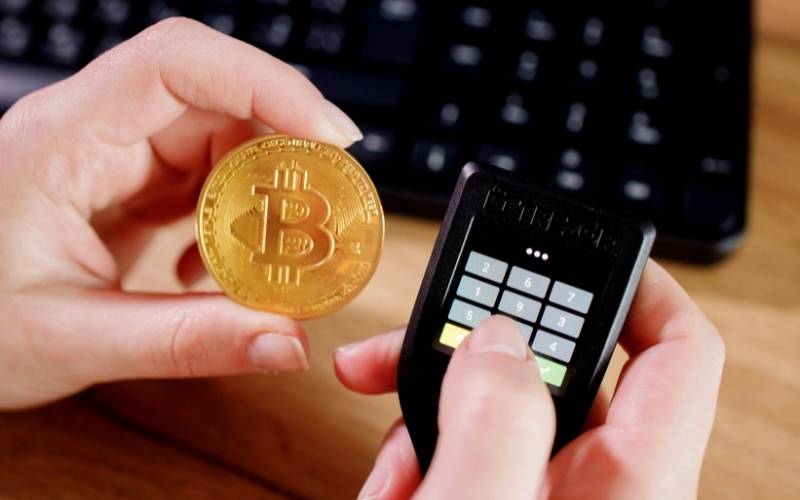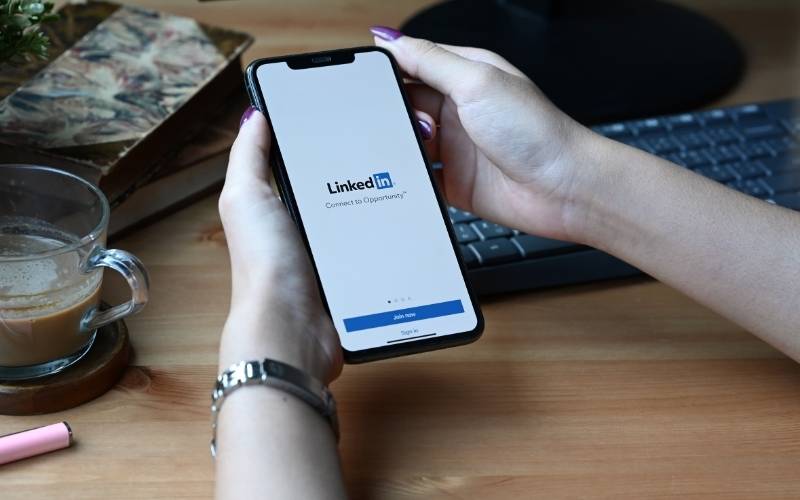Home » The FBI Warns That Cryptocurrency Scammers are Targeting Victims via LinkedIn
The FBI Warns That Cryptocurrency Scammers are Targeting Victims via LinkedIn

Nothing appears to be out of reach for crypto scammers. Cybercriminals are now using LinkedIn to defraud cryptocurrency investors, following phishing attacks, rug pulls, fake giveaways, and other elaborate schemes.
On June 17, 2022, FBI special agent Sean Ragan revealed to CNBC that the networking platform had become a hotbed for illicit activities. He stated that these cryptocurrency scams pose a “significant threat” to LinkedIn and its members.
LinkedIn is no exception to the growing problem of digital currency fraud. Indeed, cryptocurrency scams are big business on LinkedIn, according to Sean Ragan, the FBI’s special agent in charge of the San Francisco and Sacramento, California, field offices.
“It’s a serious threat.” This type of fraudulent activity is widespread, and there are numerous potential victims as well as past and current victims.”
How do these scams operate?
Scammers, according to Ragan, create professional-looking fake profiles and initiate conversations with hand-picked users via the in-built messaging feature. In order to gain victims’ trust, the scammers initially direct them to legitimate investment platforms.

They cultivate a relationship with the victim over several months before persuading them to transfer the funds to a different platform that is anything but legitimate and is usually run by the scammer himself. As a result, the money is lost the moment it leaves the victim’s wallet.
“This type of fraud is significant, and there are numerous potential victims. There have been and continue to be many victims, both past and present “Ragan stated. In an interview with CNBC, a group of victims revealed that the amounts siphoned off ranged from $200,000 to $1.6 million.
Because LinkedIn is a trusted platform for business networking, victims are more likely to take messages from strangers seriously. After all, it’s a venue for professionals to meet new people and network within their industry.
This method appears to be an offshoot of popular dating portal honeytrap romance scams. Instead of falling in love, scammers use the guise of business, networking, and job opportunities to establish relationships and dupe users into parting with their hard-earned money or cryptocurrency.
LinkedIn, which is owned by Microsoft, has a presence in over 200 countries and over 830 million users worldwide. The Federal Trade Commission (FTC) estimates that between January 2021 and March 2022, $575 million was lost due to investment-related fraud. LinkedIn also admitted in a statement that such fraudulent activity is becoming more common on its platform and that it is working hard to combat it.
DO YOU NEED EXPERT ADVICE?
We have encountered victims who were mentally and emotionally drained when they were scammed out of their money. We can help you with your legal and technical concerns. We can help you get your money back.
The story of Mei Mei Soe
Mei Mei Soe, a Florida benefits manager, claims she lost $288,000 (her entire life savings) to a LinkedIn scammer. It began innocently enough, with someone claiming to be a manager at a Los Angeles fitness company reaching out to her last December.
They started chatting on LinkedIn and then on a messaging app, and she expressed interest in his offer to help her make money. “He asked if I was on LinkedIn for professional networking or if I was looking for work,” Soe explained. “I never trust anyone, but we started talking, and he gradually gained my trust.”
“He showed me how he’s profiting from his investments and told me I should start investing with crypto.com, which I know is a legitimate website,” Soe said when the conversation eventually turned to investing. “I began with $400.”
The fraudster persuaded her to transfer her investments to a site under his control. Soe would make a total of nine transactions over several months, including bank loans and money borrowed from friends, in the hopes of using her earnings to start a small business. But Soe would soon discover that the LinkedIn connection she made wasn’t who he claimed to be. She eventually lost all of her money.
“I remember that day,” Soe said. “When I realized I’d been duped, I attempted to contact him but couldn’t find him anywhere.” I work hard, and I work hard to save every single dollar. It stings.”

She stated that she never expected to be scammed on LinkedIn.
If you’ve been a victim of Cryptocurrency Scam you can Contact Us for Support
So, what does LinkedIn intend to do about it?
To begin with, LinkedIn has increased account screening and blocking. In 2021 alone, the company closed 32 million suspicious accounts. LinkedIn reported in one of its reports that its automated cybersecurity systems stopped 96 percent of such fake accounts between July 2021 and December 2021.
During registration, the system flagged 11.9 million fake accounts and identified 4.4 million malicious accounts. These accounts were quickly disabled and removed. LinkedIn also encourages users to file complaints and report such incidents so that they can be managed effectively.
“We strictly enforce our policies, which are unequivocal: fraudulent activity, including financial scams, is not permitted on LinkedIn. Every day, we work to keep our members safe, including investing in automated and manual defenses to detect and address fake accounts, false information, and suspected fraud “LinkedIn informed CNBC.
What can investors do to avoid similar situations?

Interacting with strangers on the internet is acceptable only from a safe distance. Allowing them access to your finances is akin to inviting a stranger into your home and expecting nothing to go missing. If you want to interact safely on internet platforms like LinkedIn, the FTC recommends the following guidelines:
- Do not fall for high returns: Only scammers will promise you high returns in a ridiculously short period of time.
- No legitimate company will require cryptocurrency: If you are asked to pay in cryptocurrency ‘only,’ this is a huge red flag.
- Romance and investment should never be combined: Keep your distance if such an interest persuades you to move some of your cryptos to a different address. Since 2021, romance scams have defrauded people out of $185 million, making them the second most common online scam after investment scams.
Be wary of requests for connection from people you don’t know. Be wary of strangers who approach you for money. This could include sending cash, cryptocurrency, gift cards, or prizes. Do not respond to unsolicited email notifications from LinkedIn.
Check them out on LinkedIn instead. Furthermore, never give out your personal information or banking information to anyone you do not know. Finally, report any suspicious activity or communications to the Chargebacking experts. You can successfully keep your money safe with Cash and avoid scams by following a few of the steps identified by the professionals at Chargebacking.
Sources & Attribution
- https://www.cnbctv18.com/cryptocurrency/nft-app-stepn-that-pays-you-crypto-to-go-running-13988702.htm
- https://cyware.com/news/crypto-scammers-turn-to-linkedin-to-target-victims-1b99de6c
- Author: Scott Zamost – https://www.cnbc.com/2022/06/17/fbi-says-fraud-on-linkedin-a-significant-threat-to-platform-and-consumers.html
Find Related News
Subscribe to Our Newsletter
Scam Recovery Resources
Trading Scams – What Are The Most Common Types & How To Protect Yourself From Them
This is the comprehensive guide to understanding the most frequent types of investment fraud. Investment fraud is a genuine and severe problem in 2022, and it occurs more frequently than you may think.
How Mr. Johnson Recovered His Life’s Savings Worth $67,000 by Collaborating with Chargebacking & Kicking His Forex Scammers to The Curb!
The single most important thing a person can do to avoid being conned is to understand how to trade in the Forex market properly. The problem is that finding trusty Forex teachers is difficult.
A Ponzi Investment Scam at Its Peak – WorldCom
In Europe, the responses to the Worldcom bookkeeping outrage of the U.S. incorporated the execution of the required ‘Yearly Corporate Governance Statement.’ The Company Act 2006 has supplanted the Memorandum and Articles of Association with a solo record followed by the endeavor to abbreviate as far as possible on data conveyance for little organizations end.
All There Is To Know About Payment Scams To Stay Safe From Them in 2022
When someone steals another person’s payment information and uses it to make illicit transactions or purchases, this is known as payment fraud. hen the cardholder or owner of the payment information notices that their account is being used for transactions or purchases that they did not authorize, they file a dispute.
The Cryptocurrency Scam That Blew The World Away – CoinCheck
Coincheck had to face tremendous challenges to pay back this much money, and it almost seemed impossible to catch the thieves. Coincheck updated the rules and authenticity to all the sites keeping in view the risk involved in online transactions.
Our news coverage focuses on reporting scam related news and alerts. We aggregate information from web resources, as well as, reach out to our contacts so that we can get the latest scoop on scam operations.
FundTrace is committed to upholding the journalistic standards online, including accuracy. With our news reporting, our policy is to review each issue on a case by case basis, immediately upon becoming aware of a potential error or need for clarification, and to resolve it as quickly as possible.
We Can Help You
Victims of scams are stressed out because they don’t know what to do. We have the tools and experience to fight off scams. We will help you in getting your money back.
Please fill up the form now so that our team will get in touch with you.







